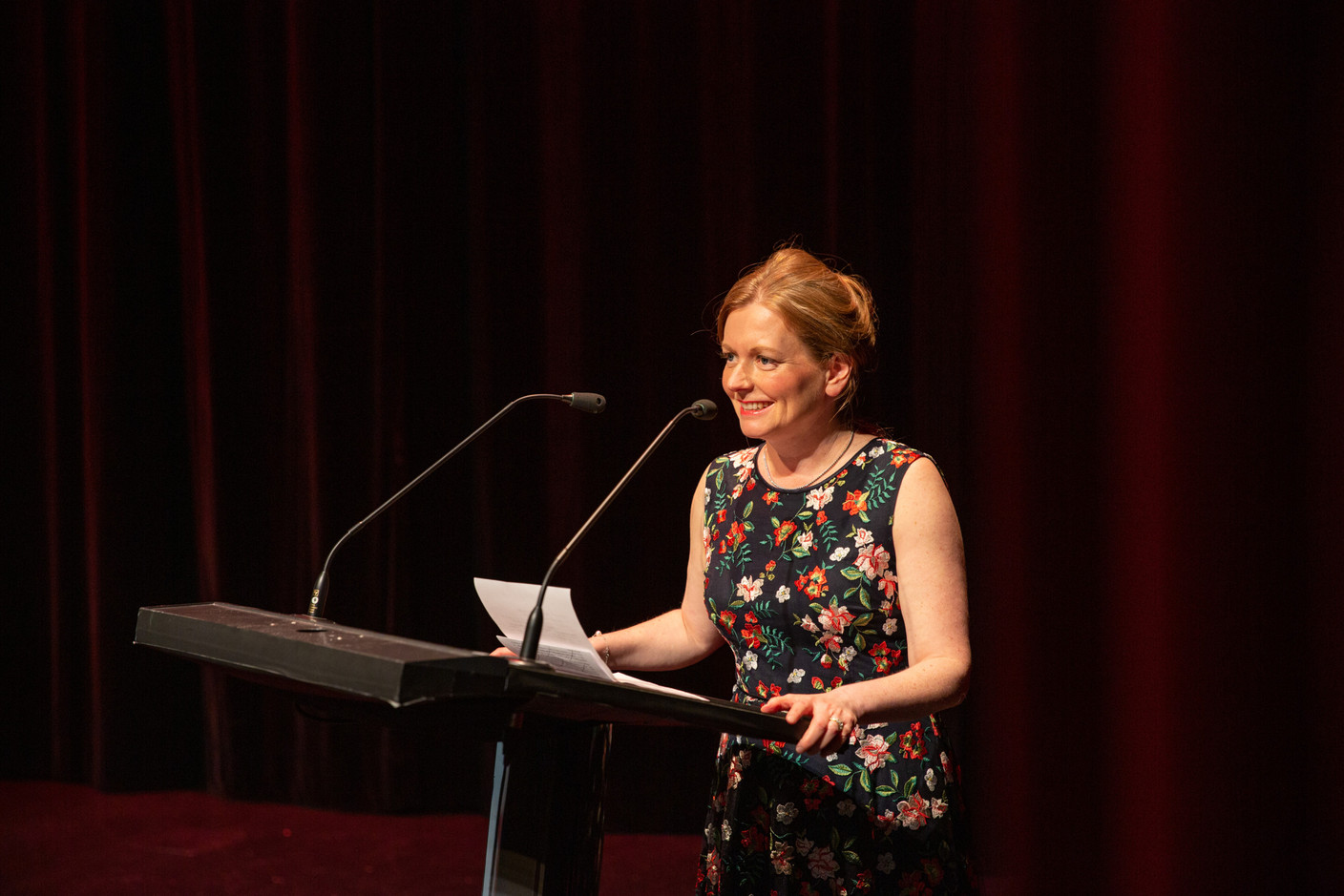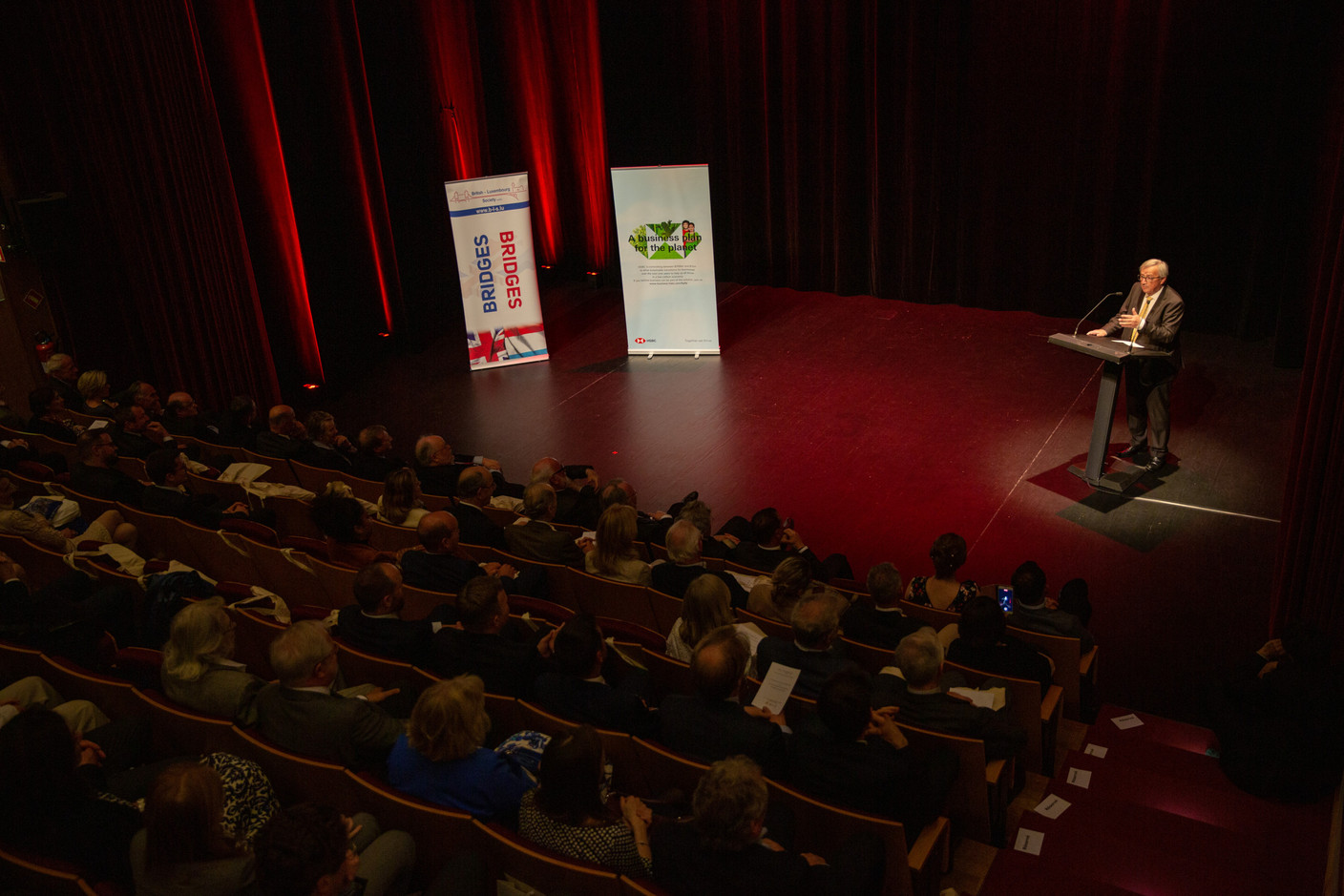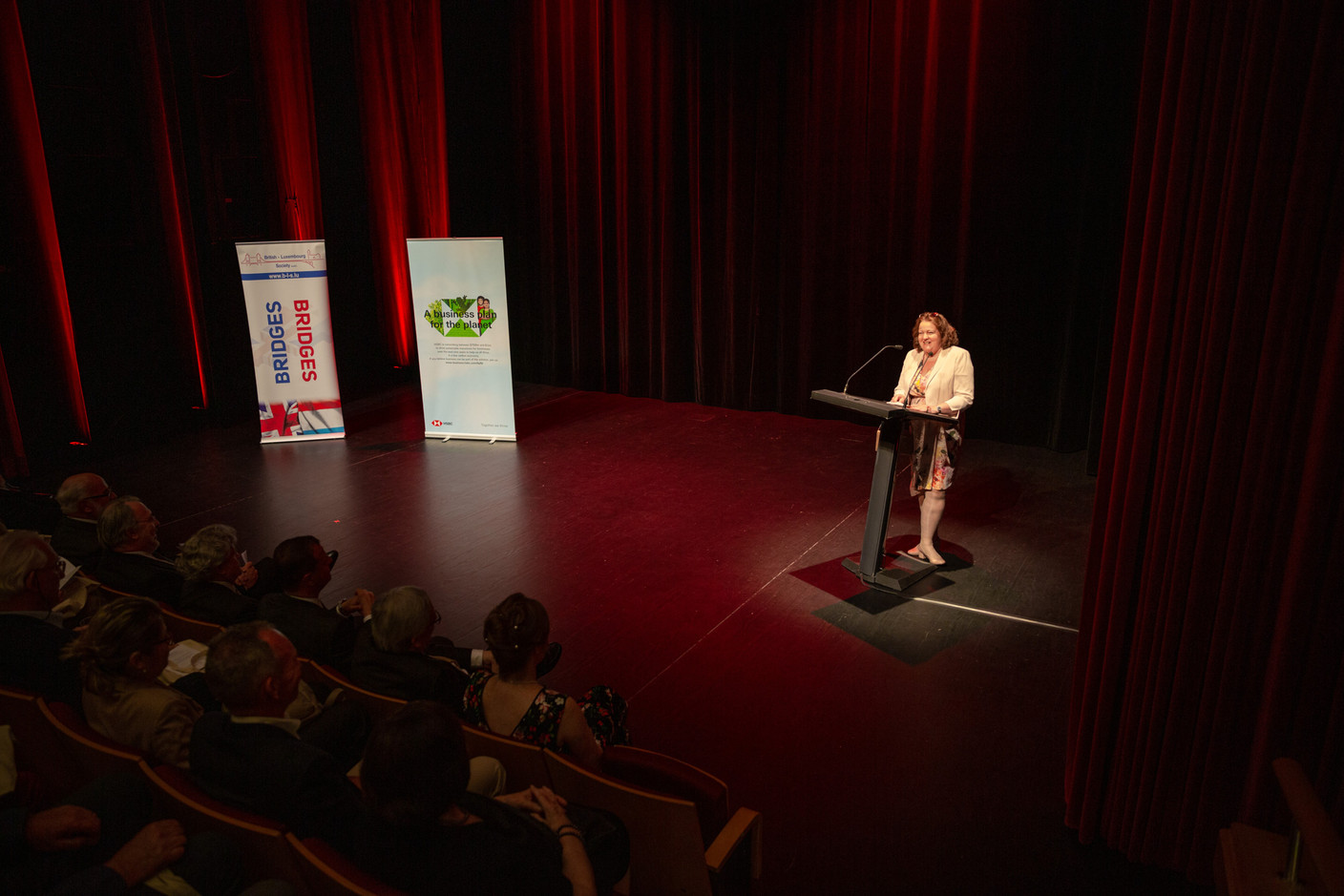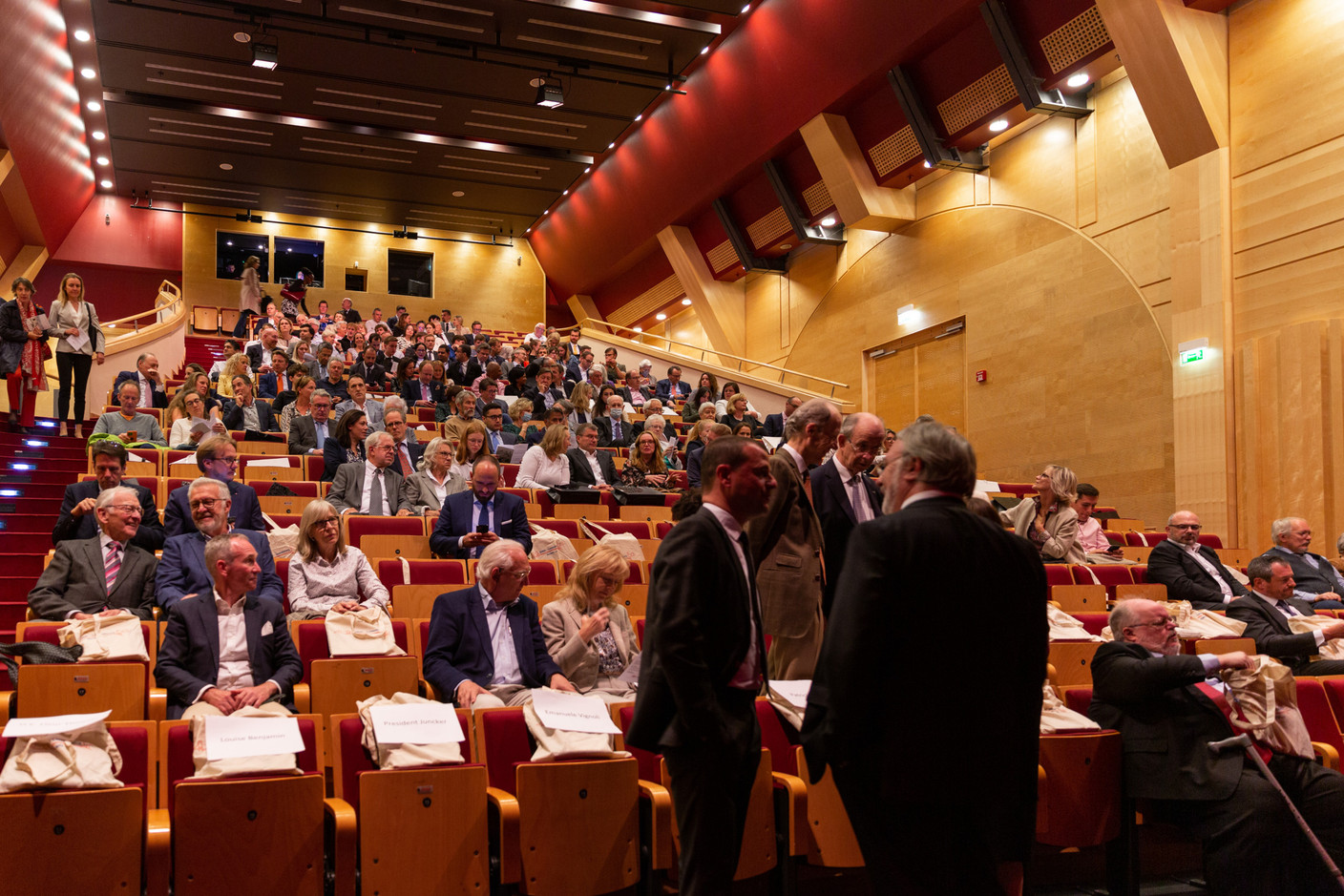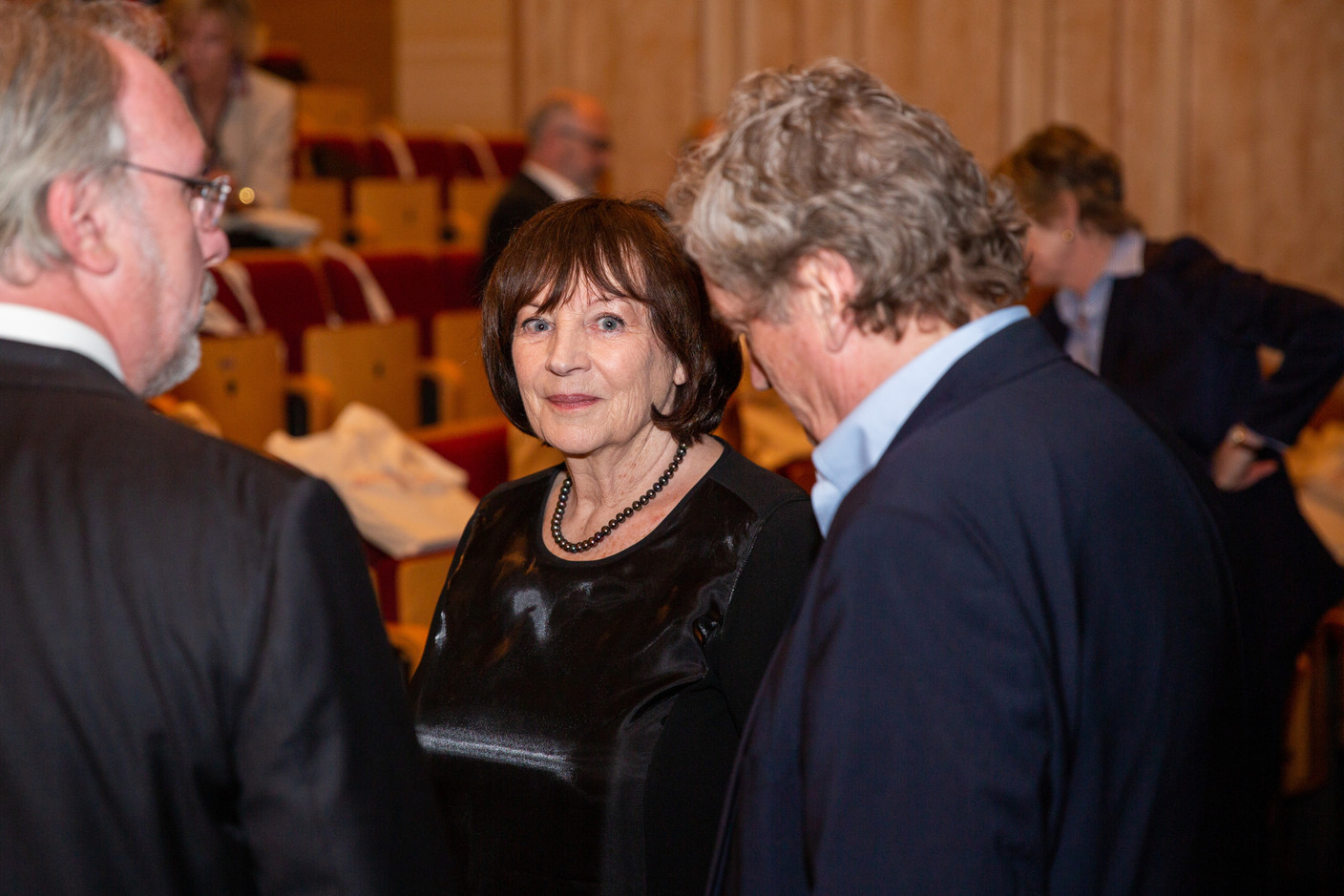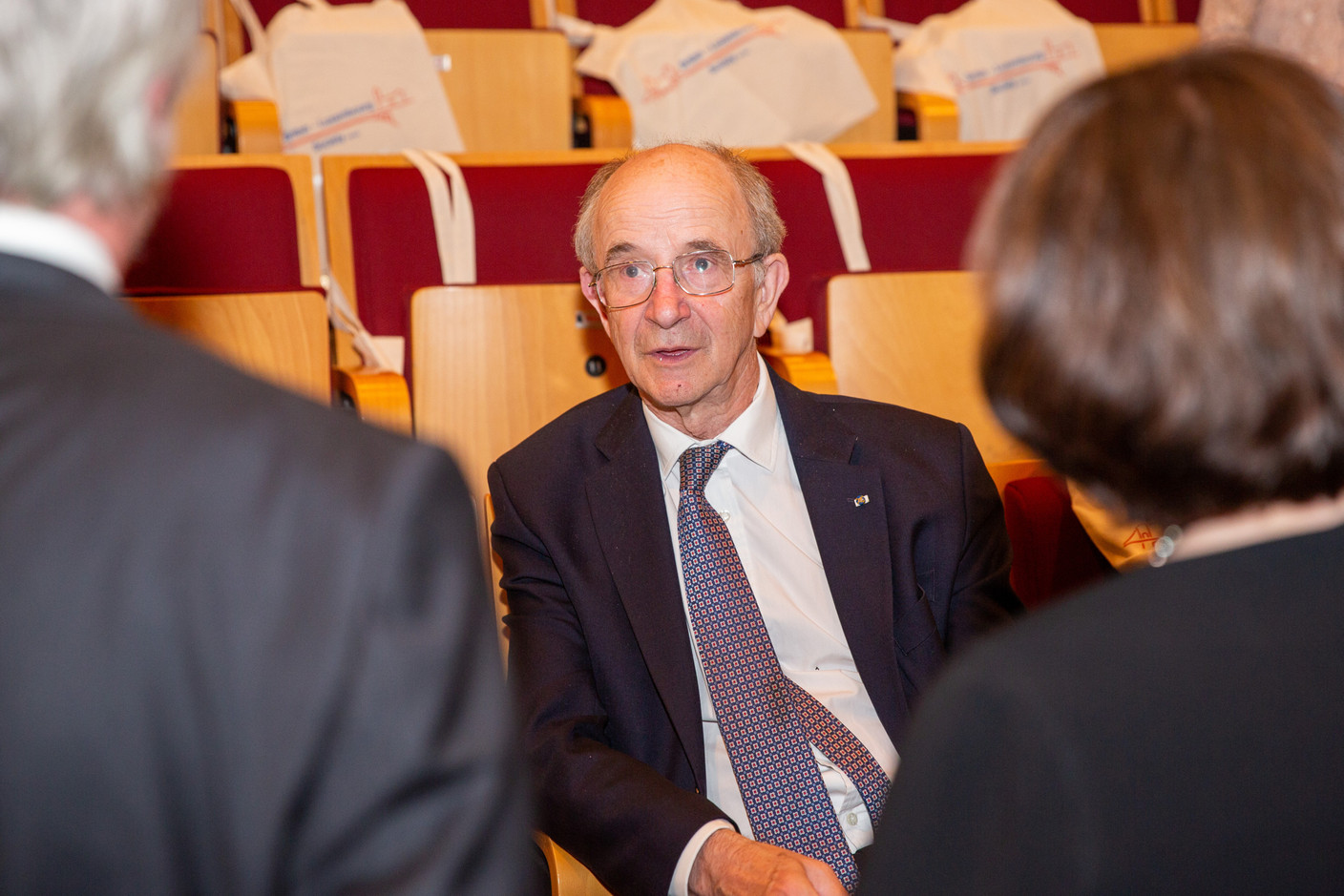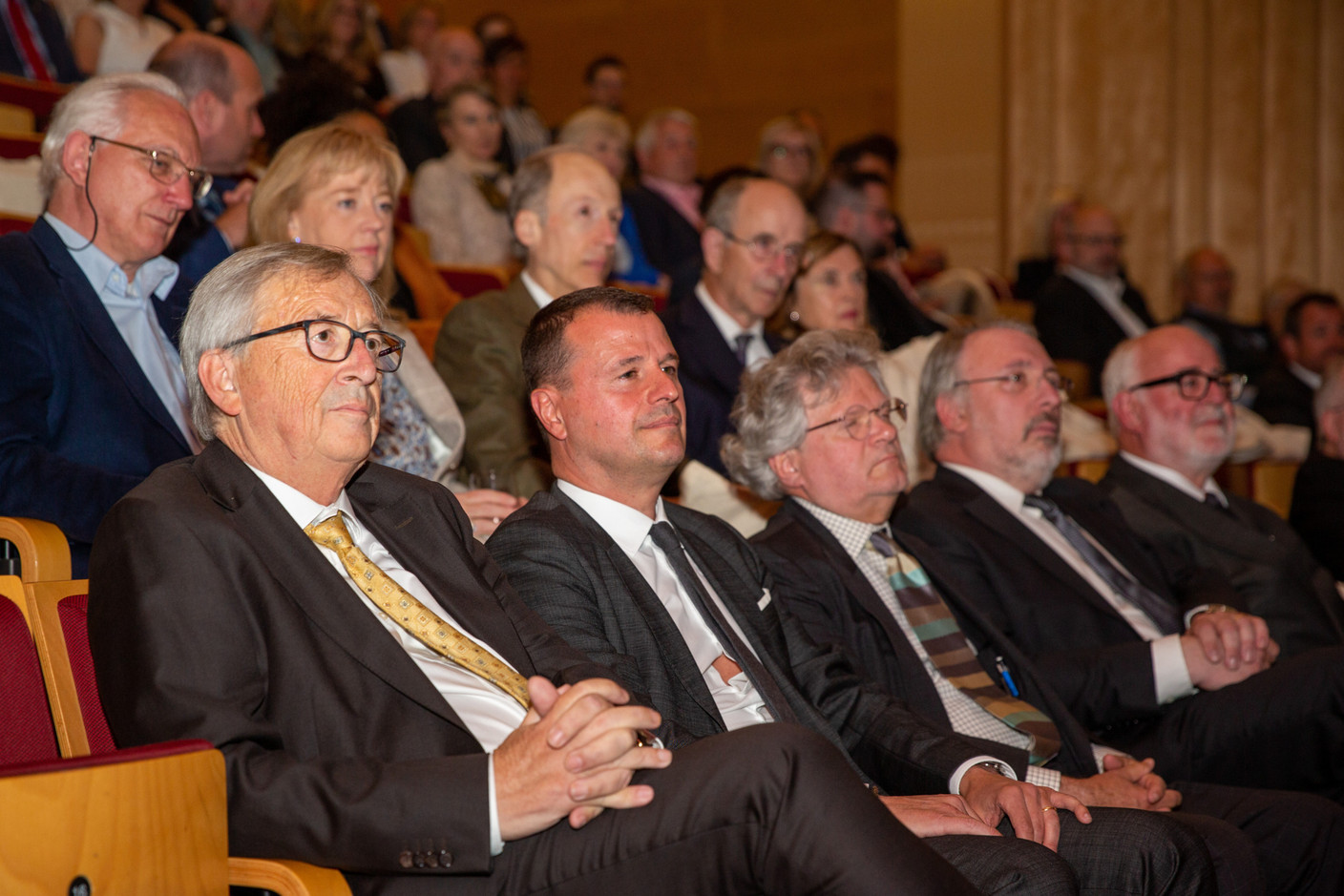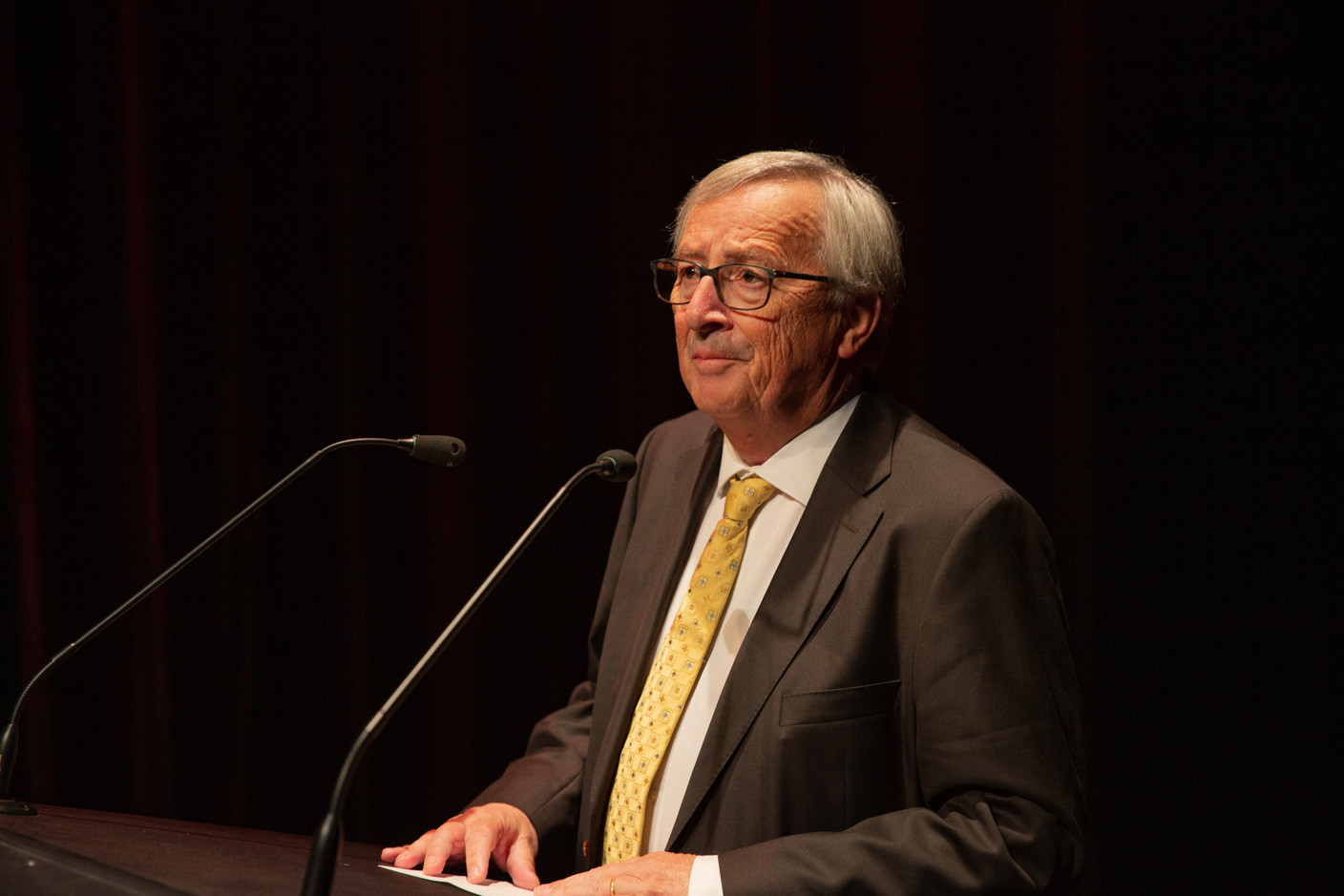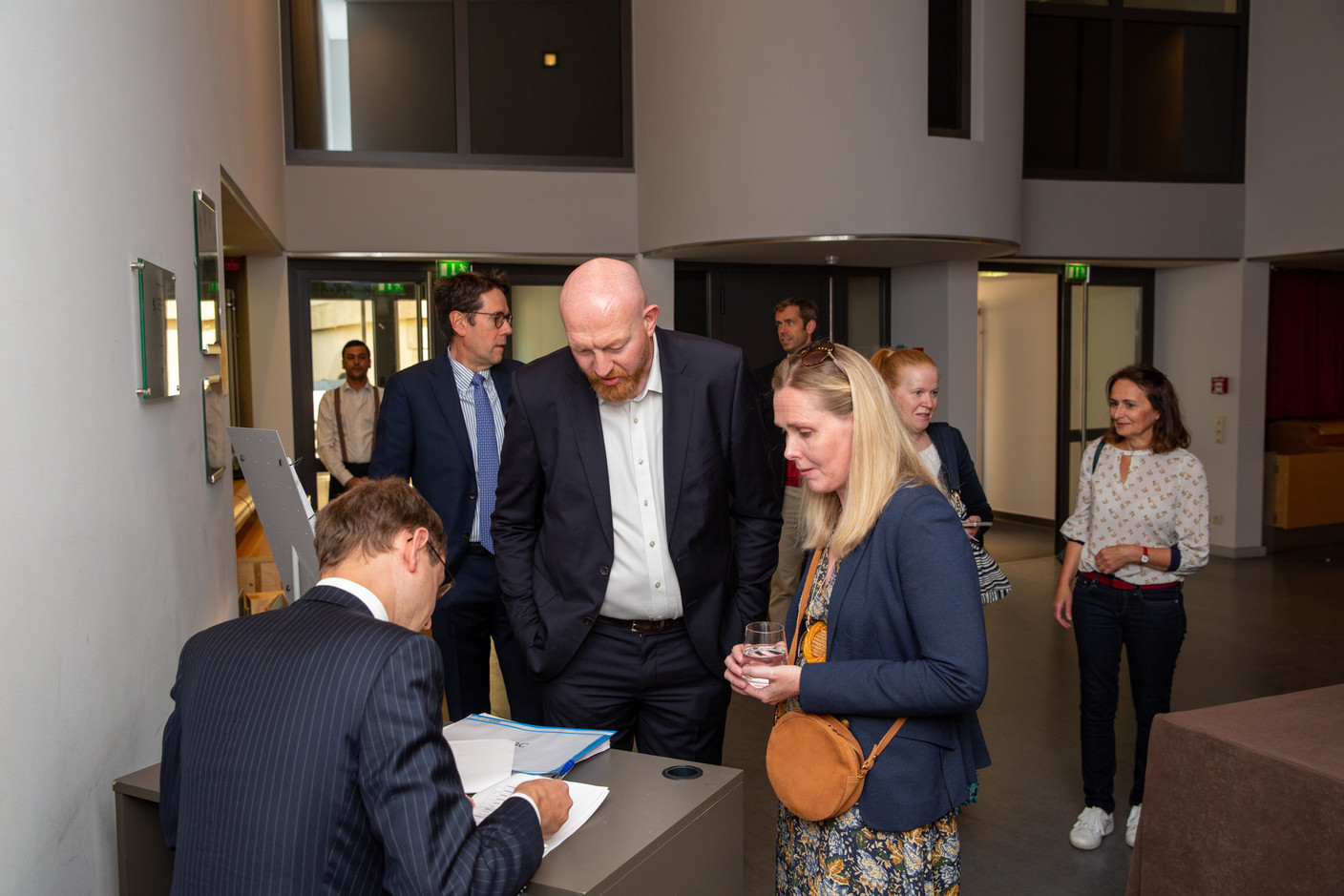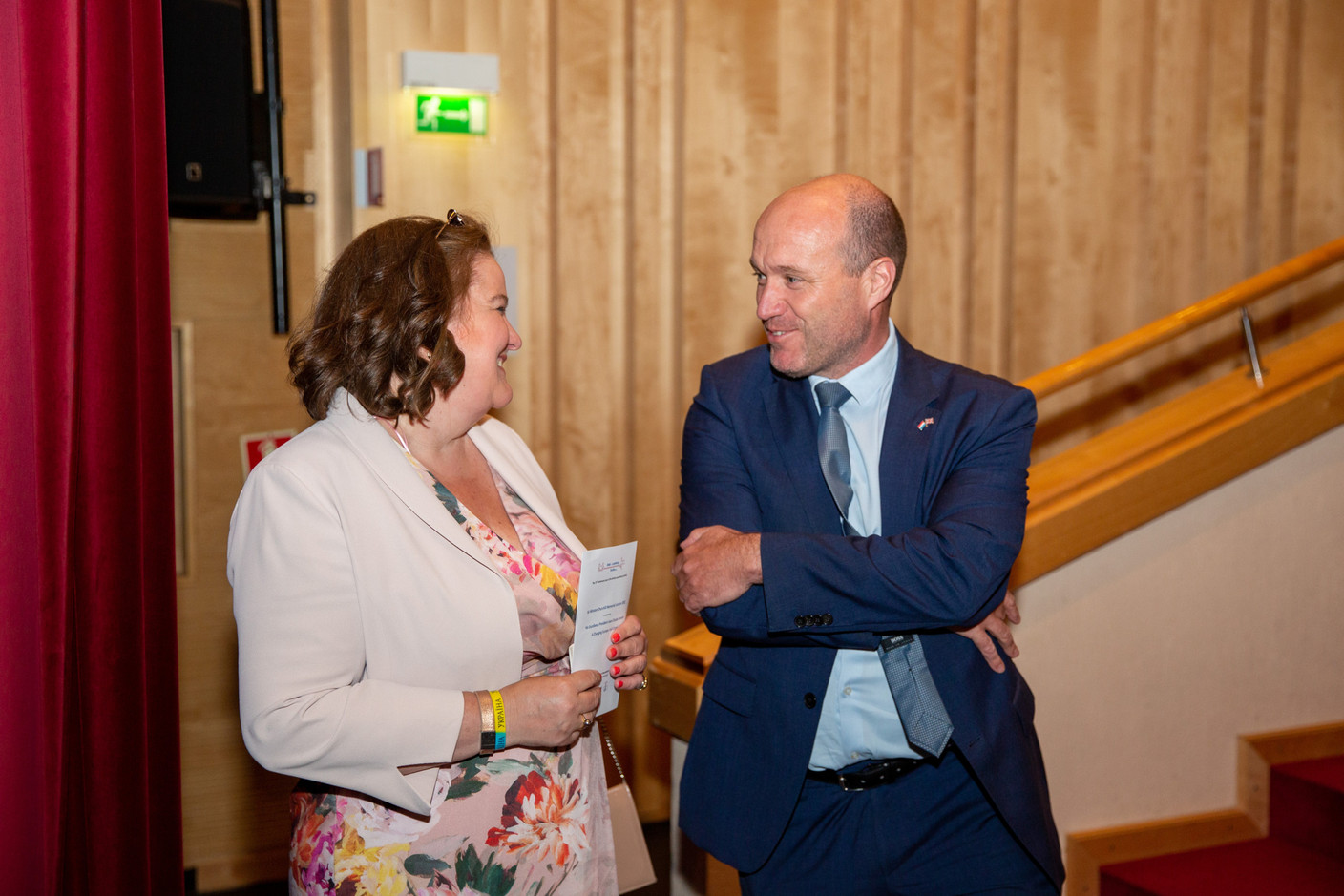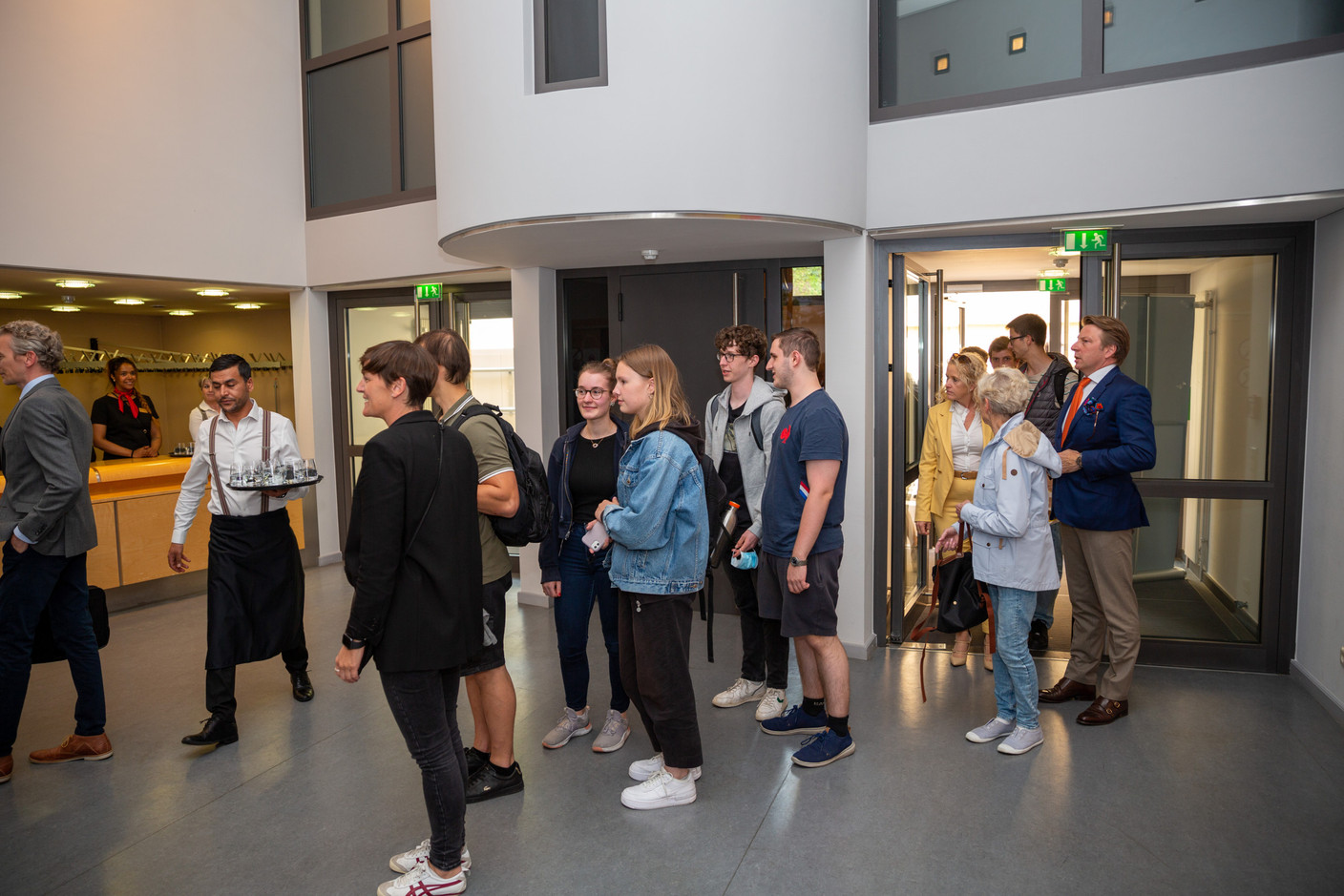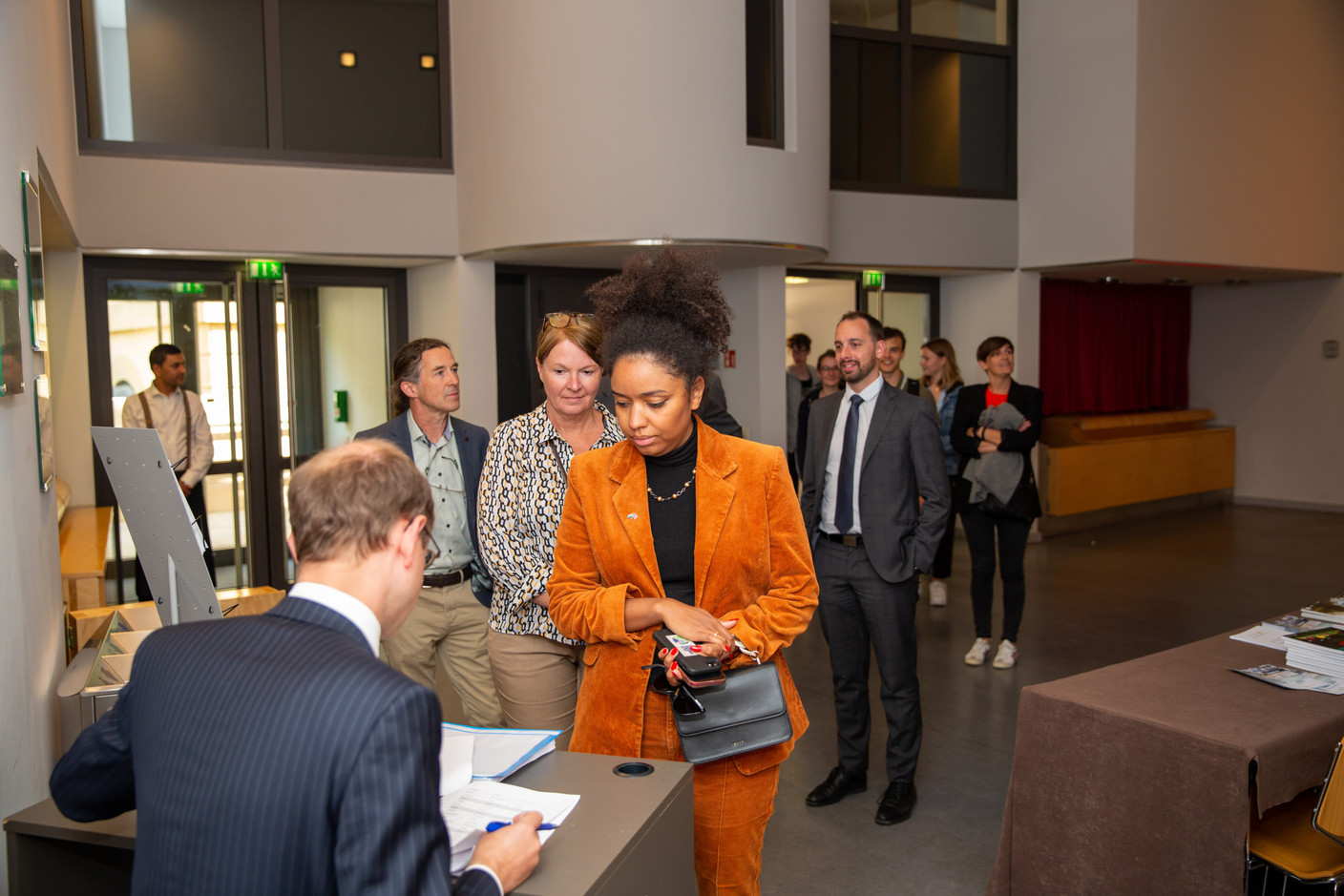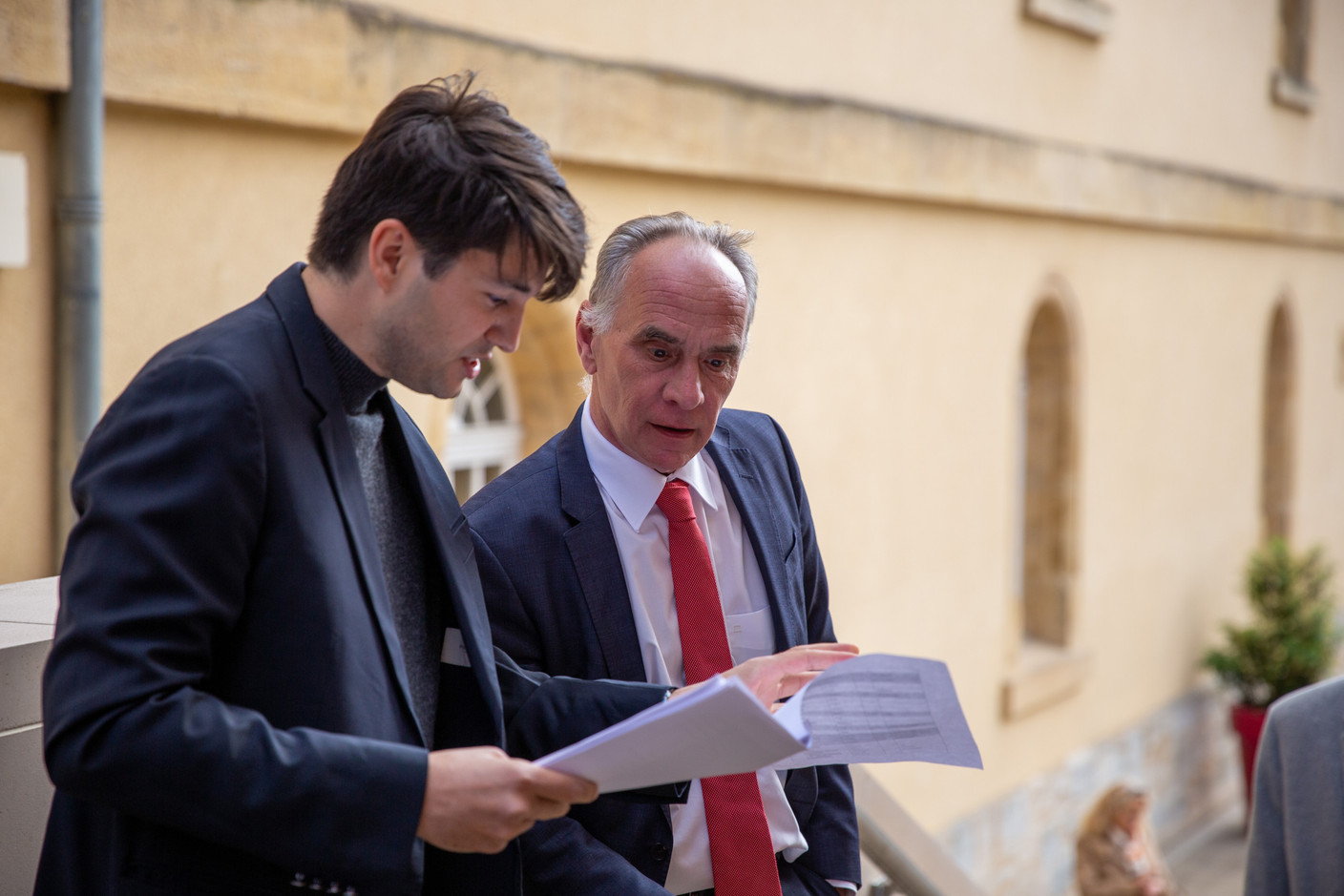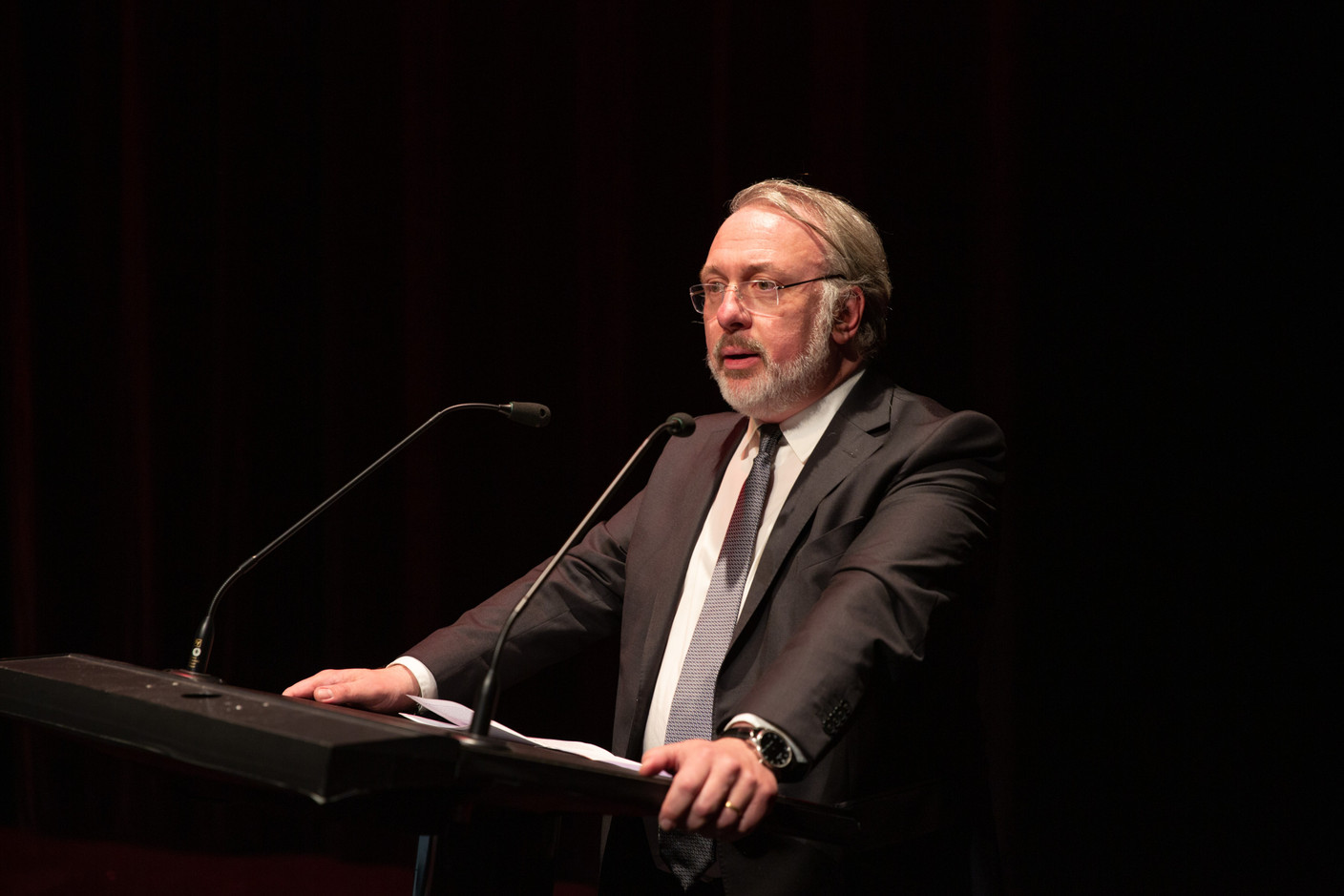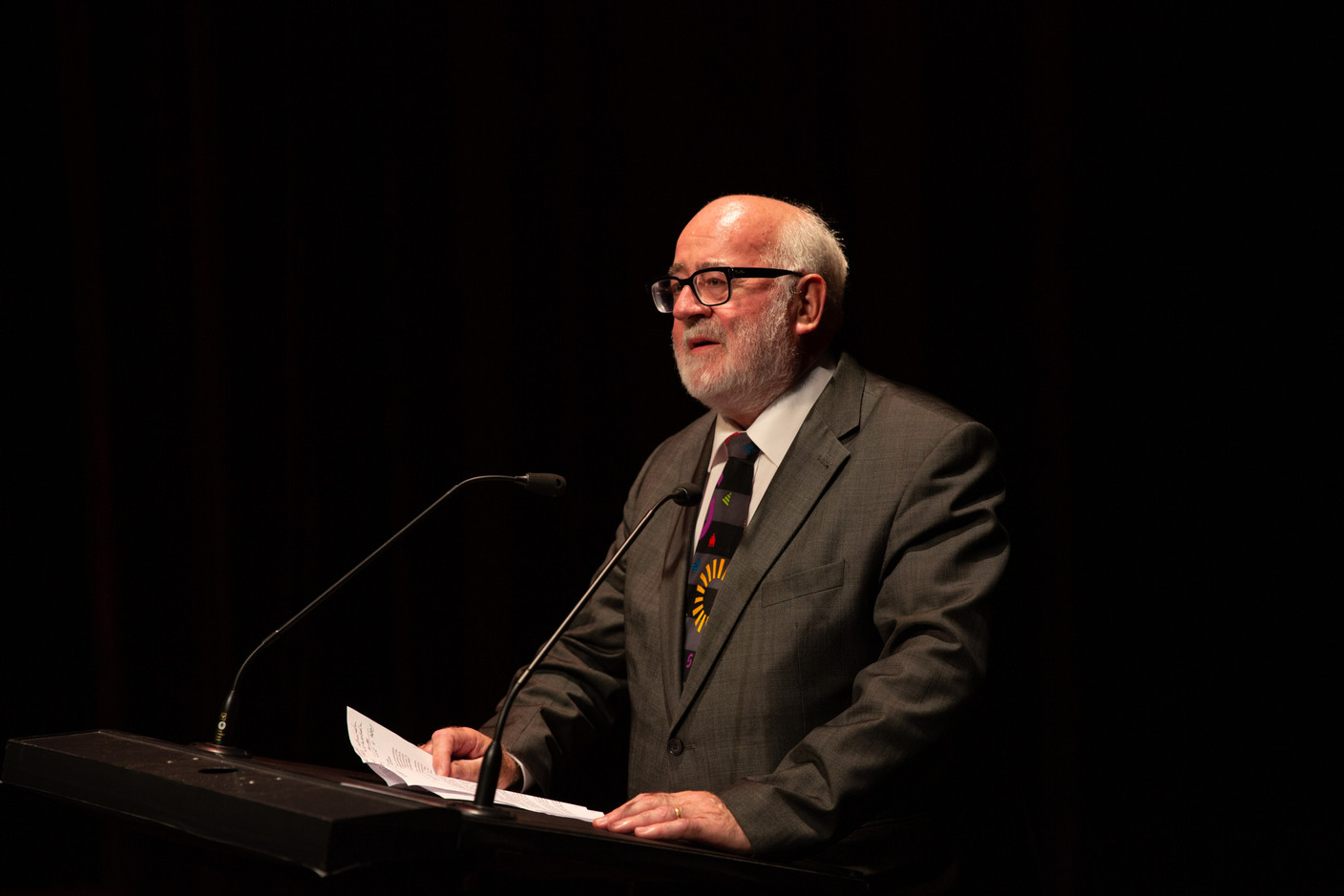Juncker (CSV) was the first Luxembourg speaker of the prestigious lecture, hosted by the BLS in honour of former prime minister Winston Churchill, who visited the grand duchy in 1946 following its liberation from Nazi occupiers. A statue of Churchill stands in an eponymous square in the capital.
BLS celebrates its 75th anniversary this year and Juncker--who led the commission through the Brexit negotiations--spoke about the changing face of Europe. Here are ten takeaways from his address:
- It all started with Trump: “We are in the middle of a polycrisis and this polycrisis started with Mister Trump,” said Juncker about the former US president. However, the US message of America first hasn’t changed, he said, even if it was delivered in politer form by Trump’s predecessor, Barack Obama, and current president Joe Biden. Juncker said he’s “never met a US president with as friendly an approach to the EU as Biden.”
- Thank God for Nato: “What would we do now without Nato,” Juncker asked. “We can be happy that Nato is still in place,” he said, citing the organisation’s role in the response to the war in Ukraine. After accusations by Trump that the organisation is obsolete as well as French president Emmanuel Macron that it is “brain dead”, Juncker said it has proven its worth but also that the EU must strengthen its pillar within Nato “immediately”.
We are not credible.
- Coordinate defence effort: There are 144 different weapons systems in the EU, which don’t necessarily talk to each other. In the US, there are 27, Juncker said, adding that the EU must admit “that our defence is by far not as efficient.” Synergising defence efforts would help the EU become more efficient, while the bloc must also up its spending, which amounts to only around 50% of US defence spending.
- Abolish unanimity: The EU must abolish its unanimity principle for a qualified majority, Juncker urged. “It’s a scandal that we are unable to express a common view on human rights in China,” he said. Hungary last year several times had blocked the EU from condemning China’s clampdown in Hong Kong. “We are not credible,” the former commission president said of the EU’s inability to speak jointly.
- Ukraine’s future in Europe: “Ukraine needs a clear-cut European perspective,” said Juncker but warned that it will take time--“20 years or so”--for the country to join the EU. “Enlargement negotiations take time,” he said, having been involved in the talks for the 2004 expansion. “It will not be easy.”
- Naïve on China: “Europe is getting weaker and weaker,” Juncker warned, as Russia and China are manifesting their roles in the global order in opposition to the US. Juncker called China both a partner and rival on global trade, but criticised that while China has access to the EU single market, European companies are far from having access to China’s internal market.
- Stop preaching: Also on China, Juncker said that the country is gaining influence in Africa as it delivers seemingly no-strings-attached aid but lobbies for geopolitical power. While upholding human rights, the EU “should stop lecturing the entire world and try our best on our own continent.” Africa needs time on social issues, such as the decriminalisation of homosexuality or abolishing the death penalty, Juncker said, adding that these discussions date back only a few decades in the EU.
The social dimension of the European Union is of paramount importance.
- Change the treaties: “Treaty changes aren’t the answer to all European challenges,” Juncker said, but neither should the bloc shy away from reform. Treaty changes should take into account lessons learned, such as the pandemic. Public health should become an EU competence, he said. It is currently mostly a member state issue, but the pandemic had shown the worth of joint responses, Juncker said.
- A social face: “The social dimension of the European Union is of paramount importance,” said Juncker, under whose presidency the commission published the European Pillar of Social Rights, which is now being implemented under his successor, Ursula von der Leyen. The pillar includes directives on work-life balance, adequate minimum wages across Europe and platform workers’ rights, among others.
- Patience and determination: “We have too many part-time Europeans in national governments,” said Juncker. To push the European project forward--and to fight populism--the EU needs “ideas, conviction, patience and determination” to match its long journey and big ambitions, the former Luxembourg PM concluded his speech.
